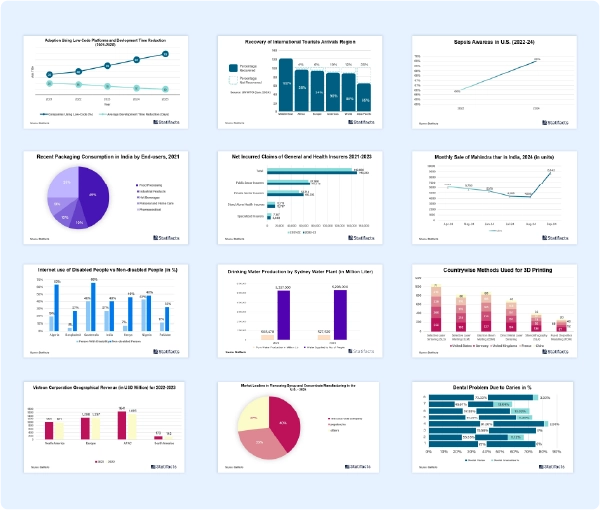

Our customers work more efficiently and benefit from
The global agricultural biotechnology market size surpassed USD 116.02 billion in 2024 and is predicted to reach around USD 272.15 billion by 2034, registering a CAGR of 8.9% from 2025 to 2034.
| Industry Worth | Details |
| Market Size in 2025 | USD 126.35 Billion |
| Market Size by 2034 | USD 272.15 Billion |
| Market Growth Rate from 2025 to 2034 | CAGR of 8.9% |
The agricultural biotechnology market deals with the usage of scientific procedures and instruments to modify living organisms, chiefly animals and plants, for agricultural manufacturing, which conducts together various sectors, such as genomics, genetics, bioinformatics, and molecular biology, to generate crops and livestock that own the attributes that are desire. Increasing investment in climate research, food security, and soil degradation, and emerging biotech solutions from them are becoming important for improving crop resilience, decreasing the need for chemical inputs, and enhancing overall agricultural yield. Farmers are progressively increasing the use of genetically modified (GMO) seeds, biopesticides, and biofertilizers to drive crop production efficiently while reducing environmental crashes. Meanwhile, governments, along with regulatory bodies, are funding biotech-powered innovations via funding and policy changes.
North America is expected to be dominant in the agricultural biotechnology market because of the extensive agricultural research and development facilities, widespread use of biotechnologically enhanced crops, and favorable laws. Decades of scientific progress and leadership accelerate market growth by creating global trends, encouraging innovation, and tempting investments. Despite this, the incidence of dominance contributes to inequalities since other regions experience obstacles in accepting the latest technologies because of infrastructure and legal difficulties, which could certainly hamper the global evolution of the agricultural biotechnology market.
In Asia-Pacific, countries such as India and China are acknowledging and driving the adoption and acceptance of agricultural biotechnology as they attempt to understand the nutritional demands of their increasing populations. India has made remarkable stalk in the usage of biotechnology to enhance crop production and conflict hunger. With the government's target on enhancing public health framework and nutrition, the trade for agricultural biotechnology is anticipated to increase at a greater rate during the predicted period.
The market is seeing substantial growth as a result of the increasing need for eco-friendly farming techniques. Due to the growing food need worldwide, the usage of biotech solutions like genetically modified crops is now becoming more in demand. These solutions offer larger crop production and have a lower negative effect on the environment.
Despite notable growth in the space, the lack of knowledge and grip on agricultural biotechnology in emerging economies and underdeveloped regions is a major hindrance to the expansion of the industry. Hesitance among farmers concerning the adoption of the latest technology, with a shortage of agri-education and infrastructure, hampers the expansion potential in the agricultural biotechnology market.
AI technologies are greatly benefitting the agricultural biotechnology market, assisting in determining recently developed crop phenotypes, upgrading resource usage, and improving resistance to different climate conditions. AI-based algorithms and image-derived phenotyping are vital in processing big data, funding plant breeding attempts, and determining natural defense functioning. Digitalization in agriculture improves information collection, permitting the evaluation of soil health and the incorporation of regenerative agricultural methods. Thus, AI aids in understanding resource use, self-acting pest and disorder control, enhancing post-harvest procedures, and overcoming the lack of labor in various industrialized countries. Integration of artificial intelligence in biotechnology is helping in an arena of unprecedented developments. From changing agriculture to transforming drug manufacturing and establishing sustainable animal farming methods, AI’s effect is far approaching.
The agricultural biotechnology market covers a broad range of scientific procedures targeted at enhancing plants, microbes, and animals to improve agricultural sustainability and productivity. By modifying the genetic composition of plants, scientists can generate crops that are resistant to diseases, severe weather conditions, and pests. This has contributed to remarkable growth in crop manufacturing and has assisted farmers in decreasing losses. Further, biotechnology qualifies the generation of crops with enhanced nutritional content, which is vital in marking malnutrition and hunger cases. The general incline toward renewable energy origin has designed a chance for agricultural biotechnology to participate in a vital role in the manufacturing of biofuels. Integration of biotechnology with various of the latest technologies, like data analytics and artificial intelligence, will permit farmers to make greater decisions and enhance productivity while reducing environmental results.
For any questions about this dataset or to discuss customization options, please write to us at sales@statifacts.com
| Stats ID: | 6114 |
| Format: | Databook |
| Published: | March 2025 |
| Delivery: | Immediate |
| Price | US$ 1550 |



| Stats ID: | 6114 |
| Format: | Databook |
| Published: | November 2024 |
| Delivery: | Immediate |
| Price | US$ 1550 |

You will receive an email from our Business Development Manager. Please be sure to check your SPAM/JUNK folder too.

Unlock unlimited access to all exclusive market research reports, empowering your business.
Get industry insights at the most affordable plan
Stay ahead of the competition with comprehensive, actionable intelligence at your fingertips!
Learn More Download
Download